WORDPRESS
Top 5 Alternative of Google Blogger in 2022
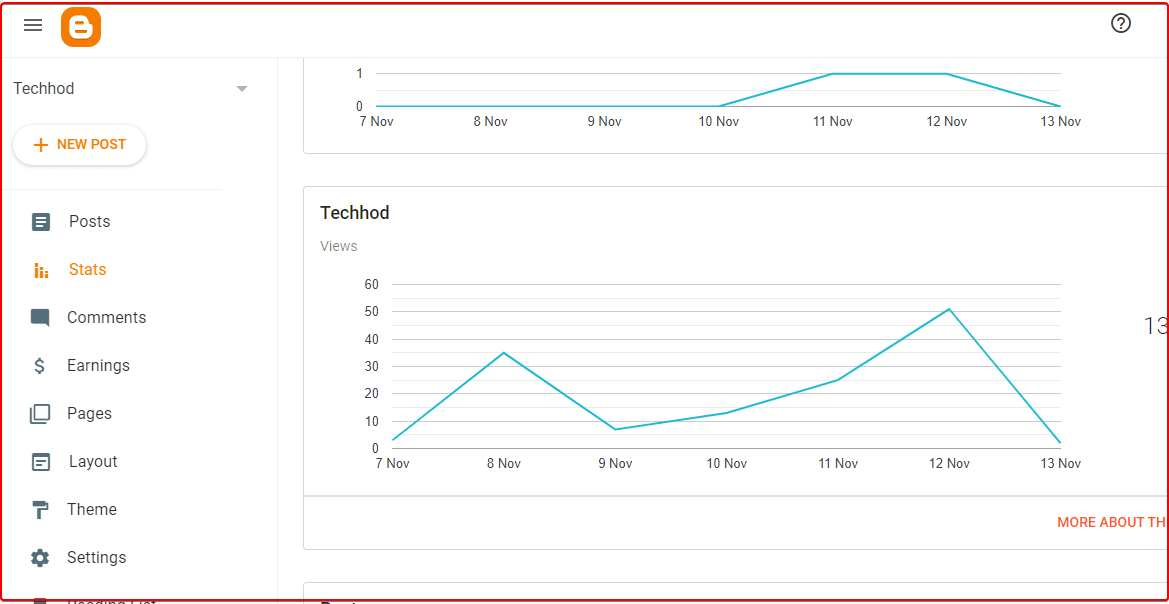
Google Blogger also known as Blogspot.com is one of the oldest and popular platforms for blogging and developing basic websites. Google Blogger is dominating the market for decades for creating blogging websites. We all know Blogger is free, easy to set up, easy to operate the backend, and requires no coding knowledge at all to start with.
Blogger was launched as a free platform back in 1999, and even back then it was developed in Python. Initially, it was developed by Pyra Labs, later in 2003 Google acquired it and added the platform as a free add-on service with their Google account. Back in 2006, the UI got redesigned and since then it is receiving regular updates which made Blogger one of the most reliable Blogging platforms even in 2021.
It is available in more than 60 languages and in 2020 they introduced a whole new look for its interface which makes Blogger a considerable choice for any sort of website building. Blogger is web-based hence it is supported on all platforms including Android, Windows, Linux, and macOS.
Why Look For Blogger Alternative
Now the question arises, if Blogger is so awesome, why one should look for alternatives. Because Blogger has many cons which can not be overlooked. Also with the increasing need of users, the website builder platforms need to be flexible and feature-rich enough, so that they can suffice all the developer and user demands. While it comes to Blogger, it has very little amount of extending features, layouts, and designing a versatile homepage using Blogger becomes a challenge. Blogger does not support any third-party apps other than Google services. Also, no customer support is provided for Blogger by Google, so no help from the devs if anything goes wrong.
The purpose for which Google Blogger was developed was writing and blogging only. To make it fast and simple for everyone the Blogger uses a fixed type of layout to showcase the content of the website. There is not much room for either changing the layout to an optimum level or any third-party service integration.
If you want to create different types of pages you might need to create custom CSS, for which you’ll need expertise in HTML and CSS. Else you might have to hire an expensive professional for the job. If you are planning to turn blogging into a career, or you want to start a simple e-commerce site, then Blogger might not be a good enough choice to suffice your needs. Without the ability and versatility to scale, a platform like Blogger should not be a choice for website or blog creation for advanced users.
So, in this article, we would be discussing some other platforms which are good alternatives for Google Blogger users. While looking for Blogger alternatives, you should keep in mind your needs. You should make sure your choice is not only meant to meet the needs of yours, but also stays cost-effective, reliable, easy to use, and provides monetization & customer supports.
So, let’s dive into the list of Blogger alternatives and discuss them in detail.
What are the alternatives to Google Blogger (Blogspot)?
We are going to discuss only the top 5 alternatives for Google Blogger. All the alternatives we are going to talk about are meant for general users with a low or no amount of expertise in coding.
1. Medium
The first one would be Medium without any doubt, as Medium is another platform meant and developed for blogging purposes only. Just like Blogger, Medium is free, and you can post your blogs without paying any subscription fees. If you don’t have any web development or designing skills, don’t worry as Medium comes with its modern layout.
But before you start using Medium, you need to understand that Medium is for posting blogs only. Medium is a lightweight website builder like Google Blogger, but it is actually a closed service where anyone can create an account and post blogs.
Medium Pros:
- Easy to use with a user-friendly interface
- Free for everyone
- Comfortable while reading and writing articles
- The editor system is very powerful, yet simple and easy to use.
- Change tracker helps the authors to review changes and edits.
- Nice statistics page to analyze the performance of the articles
- As Medium has 96 Domain Authority, and all your articles are posted under the same domain, so by default your on-page SEO gets a boost and gain traction easily.
- High-stat articles often get featured by the platform itself.
- You can get noticed as a content writer and can get a chance to earn from writing, so great for newbies.
- You can earn directly from your blogs by joining the “Medium Partner Program”. If you provide high-quality content the editorial team will recommend it to the subscribed members.
- Comes with Twitter integration, which might help you to increase your Twitter followers.
- Embedding media is easy due to the robust editor
- Has a larger user base, also has a large loyal reader base
- Categorizing articles is easy, which makes it easier to navigate.
Medium Cons:
- In order o monetize the blogs you have to join the paid “Medium Partner Program”.
- The payment wall is complex to understand
- Your good content might get buried easily under a similar type of contents
- If you want to get viral with one article or just with one series of articles, it is hard to do so with Medium.
- A lot of irrelevant and low-quality content can be found on this platform
- The spam score is 11% with Medium, which is a very big problem in the case of sharing inbound-outbound links and SEO.
- Topic selection recommendation is poor
- Not worth serious type of content marketing efforts.
Customer Support
Medium provides premium customer support even if you are not a paid member. You will get support whenever you need it.
Verdict:
Very good for new writers who just want to start writing and learn the basics firsthand. But, getting exposure to new writers is very tough and often impossible.
If you are thinking about becoming a professional blogger or content writer just by posting on medium regularly, that’s not going to happen easily.
If you are a pro blogger and already publishing high-quality articles on other sites, you can use Medium to gain more traction towards your content.
If you are using it for business marketing or content marketing purposes, your goals need to be very clear, as Medium has many limitations.
Of course, the user interface and text editor are the best of their class, even more, robust than most custom and WordPress editors.
Author Rating: 6.5/10
2. WordPress.com
WordPress is a hosted, free, and customizable blogging platform. WordPress is not just a blogging platform, it is a rich website development tool, which provides all the necessary tools and plugins to create a stunning site. Whether you want to create a site for blogging, or e-commerce business, or anything else, WordPress got you covered.
Using WordPress you can do any type of customization, you can modify and edit your website however you want. Even if you are looking for some custom code or CSS that also can be done using with just a few clicks.
If you are fancy about the layout, and front-end design then WordPress is should be your choice. If you don’t have many skills in website building, then also you can use WordPress. Help yourself with some YouTube tutorials, and you will end up creating a stunning website within no time.
While using the WordPress.com service you can use the WordPress.com subdomain for free, if you don’t want to spend on domain registration at the initials stage. The WordPress UI may seem confusing at first, but there is no other web building and blogging tool in the world better than it. It has all the features and the dashboard has the block element development system. WHere you can just drag and drop boxes and blocks, twerk the color, fonts, and voila! your site is ready.
WordPress also comes n the shape of a mobile app on android and iOS devices. If you don’t have access to a PC, you can do all the controls even from your smartphone, from anywhere in the world. All the plugins also come for free, with premium and freemium services included, many of them are completely free to use as well. In the plugin store, you would find multiple plugins for all possible needs you may have in order to create and decorate your website.
The Personal and Premium packages start from $4 and $8, while the monthly business plan costs $25 only. WordPress is not only meant for bloggers, but for all sorts of web builders for any type of small or big business.
WordPress Pros:
- Over 40% of the websites on the internet around the world are developed using WordPress.
- The dashboard is very organized and easy to navigate for most of the users.
- The preview system before you publish content is great.
- It is fairly simple creating new and duplicate pages and posts
- Numerous amount plugins are available to provide additional capabilities in the plugin store
- There are thousands of themes available for free and for low cost, to suit all kinds of needs and businesses.
- There is a huge generous community behind WordPress
- For newcomers, there are loads of educational materials available both online for free. Even the documentation is also very comprehensive.
- Tons of extensions and plugins can be found.
- The admin interface is very simple but contains almost all the features possible.
- WordPress is an open-source CMS
- If you are worried about SEO, using WordPress plugin you can optimize your content and site as you desire
- If you see any cool features on someone else’s website, just browse the plugin library, find the solution and add it to your website.
- Very easy to create and keep backup and very easy to update the plugin, WordPress & HTML versions.
- Cost-effective for bloggers, eCommerce businesses, portfolio sites, and any type of small to large scale business.
- Very fast to launch the initial design due to the prebuilt themes, database, dashboard, and interactive UI.
- If you are going to hire a professional for development, then you will find lots of experienced freelancers who can do the job at a very affordable price.
- You can also self-host sites in WordPress which ensures more control over functionality
- Cross-team collaboration works very well, where you can design multi-level of access as per the user’s needs.
WordPress Cons:
- Many unoptimized plugins are available there which can slow down the overall website while loading.
- Media-like images need to be small to be uploaded and loaded successfully while browsing. Else you can use plugins for that too.
- The WordPress plugin ecosystem is huge, so it is very common for a new user to become confused due to multiple plugin conflicts.
- Troubleshooting some plugins are frustrating. Mishappening can lead to the site crashing at loading.
- Though WordPress is like a complete package, there are some basic features that WordPress doesn’t provide out of the box. Features like auto back-up or one-click back-up are not included, you need to configure plugins for that. No default SEO metrics or tools are provided out of the box.
- Using lots of plugins without managing the resources properly can increase the JavaScript loads and can slow down the overall website. So while adding new features using 3rd party plugins the developer must know what he is doing.
- Too many options, features, plugins, and flexibility lead to confusion for many straightforward users.
- Need a good hosting plan with an ample amount of resources (bandwidth, storage, processing power) for reliable performance.
Customer Support:
WordPress is a community-based service, so you can get a lot of help from community members. Also if you are a premium member, then you can get direct support from the admins. The free version users also can mail for professional-level customer support. Apart from all these, if you are facing any problem with any plugin, most of the plugin admins do have a dedicated customer support team, ready for you.
You can also access the endless amount of video and written content on the net about WordPress and various problems which you might face with it.
Verdict:
If website management is an issue, then WordPress is simply the best. Also good for such users who are planning for upscaling in near future.
WordPress is fairly easy to learn even from newbies from non-technical educational backgrounds.
If you want to become a professional blogger or want to expand in e-commerce shortly, you should always go for WordPress above Google Blogger. In simple words, if you have any business plan regarding your website, just switch to WordPress without any 2nd thought.
Even professional freelancers and website building agencies do suggest WordPress to their clients most of the time.
With time, any digital professional learns new things and starts experimenting with the same in their own business, with WordPress you will have the perfect flexibility to do trials & errors easily.
Author Rating: 9/10
3. Wix
Wix is a great choice for start-ups who are considering a new website to promote their products and services online but don’t have the budget to pay for developers or website creation. Wix also offers free plans and services for users with zero budget.
If you just want to set up a website to determine the viability of your business online, then Wix is a great choice for you. But Wix is also being used by many bloggers around the world. If you work alone and you have to manage all the aspects of your business by yourself, then Wix would be a good choice for you.
Wix is sleek in style, comes with lots of visual features and formatting options. Wix is best if you are looking to create a website for showcasing your products or stores or if you are looking for a portfolio website.
Wix Pros:
- Wix is a lot easier to navigate and operate, compared to any other web-building tools and CMS.
- You just have to select the types, and Wix will through hundreds of options towards you for customizations, you just have to pick the one which you like. It is just like operating Microsoft paint and creating a simple drawing.
- Wis templates are cleaner, fresher, modern, and minimalistic.
- Wix’s service is reliable. They just don’t disturb the users with new offers and prices, again and again, they respect where you are.
- Using Wix it is easier to set up metadata, which boosts the SEO. With Wix, you can create functional social media shares and make your lite look more professional to search engines.
- Even after being a free and simple web builder service, Wix features compatibility with videos, images, and custom buttons. You can even add a countdown timer, target counters, etc, which are pretty awesome for a simple tool like this.
- Easy to create duplicate pages for similar types of products and services.
Wix Cons:
- The mobile response of the Wix-made sites is not good. In the present world of smartphones, the lack of mobile device response is a big problem.
- Speed of page loading is not good, so with less-patient users, the website may lose lots of potential buyers and viewers.
- Sometimes Wix acts weirdly and becomes resource-heavy on many PCs.
- The number of templates is limited, may not suffice all types of users.
- Form collection could have been better for collecting emails
- The whole Wix development is dependent on the drag and drop system, but still, the dashboard needs a lot of work.
- Running google ADs on Wix websites is tedious as new AD slots are not easy to define.
Customer Support:
The customer support is good overall good. With premium membership, you can get extended customer supports facilities. Plans range from $14 to $500 per month.
Verdict:
Wix is well-suited for fast and easy results in cost-effective mode. Has some freedom in designs, provides authority and intuitiveness. A simple and reliable tool for simple site development on any niche.
If using Wix for business then it is good for such businesses which don’t need a full-fledged CRM to manage the site. It is a good go-to tool for novice and moderate types of website builders.
Author Rating: 6.5/10
4. Squarespace
Squarespace has a better blogging tool and better support than most competitors. really great for small businesses where the owner or few employees have to do many jobs. Less appropriate for full-blown e-commerce driven websites.
Squarespace provides a very versatile, customizable website building platform that was easy to update with blog posts and to keep a specific look to the overall production website for the social media and promotion department. It’s safe and reliable and offers easy-to-implement and good-looking website templates at a reasonable price.
Squarespace Pros:
- Security at its best, Suqrespce is known for its security features.
- Customer support is good
- Easy for maintenance
- They have auto-updates so you don’t have to worry about security issues
- The editor and templates are super easy to use
- Setup is quick and easy
- Provides great looking templates
- Provides good online sessions to develop skills
- Provides website analytics
- Image Stacking is reliable
- Streamlined appearance.
- Multiple options in all the aspects
- Space for creativity and ingenuity.
- Website Building tools are up to the mark
- Customization is good
- The sites created in Squarespace are easy for my clients to maintain.
- Updating a Squarespace site can be completed by the client
- It is easy for me to quickly design and implement a wide range of websites for most users.
Squarespace Cons:
- Maintaining a Squarespace website costs more than a traditional or WordPress site.
- Building larger or more complex sites is difficult.
- Lack of 3rd party plug-ins reduces customization options.
- The forum needs to have more users
- The help center can have more videos
- Need more templates for more industries
- Squarespace would be improved by offering options for variants for downloadable products.
- Low SEO value
- Hard to expand for larger-scale online catalogs
- Limited check out integrations
- Page speed is low, which makes for a poor smartphone experience.
- WYSIWYG can be difficult to work with – feels like designing in Microsoft Word sometimes.
- Templates can be limiting and are generally less flexible than competitors like WordPress.
- Plugins and advanced features are mostly not an option.
- Trying to configure site options.
- Adapting a template to a site.
- Being able to move around the interface.
Customer Support:
Help is offered straight from the back end, and full-sentence searching is used to locate solutions to problems that others may have asked previously. With a plethora of articles and support questions papers, your query is extremely likely to have been addressed.
If not, each page includes the option to send a direct email to support. Each case is assigned a number and can be tracked. Responses are frequently prompt, with links and directions well explained.
Verdict:
Although templates and themes are available, if you are proficient in web programming or web design, you can further modify the site. You can use your custom code to do whatever you want with CSS. One is not bound by a template or theme.
Squarespace, in my opinion, is the finest option if all you need is a basic informational website. I’ve used WordPress before, and you have to continuously update it and the plugins due to security concerns. Squarespace is really simple to use. It contains useful templates to work from, and the design and building process is simple. They’ve done an excellent job of creating a platform for those who aren’t web developers.
Author Rating: 7.5/10
5. Tumblr
Tumblr is a great place to share technology and other news. When I worked on a new technology component, I could simply write an article and put it on Tumblr, where anyone could read it and learn from it. This makes it incredibly simple to share with everyone.
It’s ideal for outspoken bloggers that enjoy posting interactive content. Experts can also utilize this platform to highlight their best work and convert their blog into a portfolio.
Your blog’s appearance is also editable. Simply select a free or premium theme from the library and customize it to your preferences. Keep in mind that depending on the theme, there may be restrictions on how much you can alter.
Tumblr is ideal for sharing media and short-form content with a liberal, teen, or young adult audience. It is, however, unsuitable for B2B marketing. In addition, if editorial control over comments and answers is crucial, another platform may be preferable. If your target market is center-right or conservative, you’ll probably have more luck elsewhere.
Tumblr Pros:
- The display of structured data
- Providing a variety of formatting tools
- Template selection
- Simple, user-friendly microblogging platform.
- Your stuff is simple to follow and share.
- A wide range of content is available for people to link to and respond to.
- Tumblr’s demographics may be ideal for some businesses.
- We see a higher rate of engagement with content uploaded on Tumblr compared to other prominent social media platforms.
- It’s really simple to grow a Tumblr following.
- Tumblr is easily accessible as a cell phone download.
- It is completely free to use.
- It enables employees who might not otherwise have the opportunity to express themselves creatively at work to do so for the benefit of your company.
Tumblr Cons:
- The layout of the page cannot be completely changed.
- Display formats must be selected from the templates.
- There are no sorting options available.
- Improved filters to limit offensive or unsuitable work content.
- More ways to respond to postings.
- More robust privacy choices to accommodate a broader range of users and demands.
- The search function might be improved to be more powerful and thorough.
- Although I prefer the randomized aesthetic layout of samples, several team members found it irritating.
- I rarely understand the “recommended for you” option…
- Tumblr may improve by giving users additional options for customizing their posts.
- It cannot be used in place of other social media sites such as Facebook and Twitter.
- Google Images and Facebook both assist users in improving their photos by displaying filter choices or auto-toning.
- Tumblr currently lacks this feature, which would be a fantastic addition.
Customer Support:
Customer support is good, all you have to do is mail your quarry to [email protected], and your problem will be answered within 48 hours. You can also use the “contact form” on the Tumblr homepage, to get in touch with the support team.
Verdict:
Feel free to make your own design if you know HTML and CSS. There is a developer center as well as forum sections where you may get platform documentation and participate in conversations.
Tumblr may be an excellent tool for retail businesses. At our company, we’ve discovered that it’s a terrific approach to display new items and attract more younger people to our store. Depending on the type of products you want to display your followers, you should do testing with various types of effects that show the product that you are offering in a way that your clients are more likely to find appealing.
Personal blogging is probably the best use of this website, but I’ve also seen it utilized as a dev blog service for games and films, or as a storefront for crafters. The ability to create timelines for future postings and share photographs, text, videos, and other media makes it excellent for people who need to post products and link to external stores for purchasing. The tagging options and universal ability to share personal stuff make it ideal for fanbases/fan art and similar communities.
Author Rating: 7/10
Wrapping Up
While choosing the best blogging and web-building platform for yourself, your decision depends on your needs. Evaluate your needs, plans, and scaling opportunities before you start working with any of the above alternatives.
WORDPRESS
5 Must See Telegram Plugins for WooCommerce

Telegram is one of the most popular instant messaging apps for encrypted communication. You can use it for more than getting in touch with your friends though. For instance, with the right plugins, you can send store updates, deals, and order notifications to it. Here are 5 telegraph plugins for WooCommerce you shouldn’t miss:
🛠️ Divi Builder drag & drop page builder for WP
Notification for Telegram: this plugin sends Telegram messages when you receive a new order or order status changes. It lets customers add their own Telegram nickname.
WooCommerce Telegram Order Notification: another plugin that sends WooCommerce order notifications to your Telegram app. Notifications will include order number, status, customer name, and other info.

WP Telegram: this plugin integrates your WordPress site with Telegram. It can send posts automatically to Telegram when published or updated. It supports multiple channels and chats. It supports WooCommerce products and other custom post types.

Bot for Telegram: this plugin helps you sell products via Telegram. You simply have to create a bot and add it in the setting page. It supports simple, grouped, affiliate, and variable products.
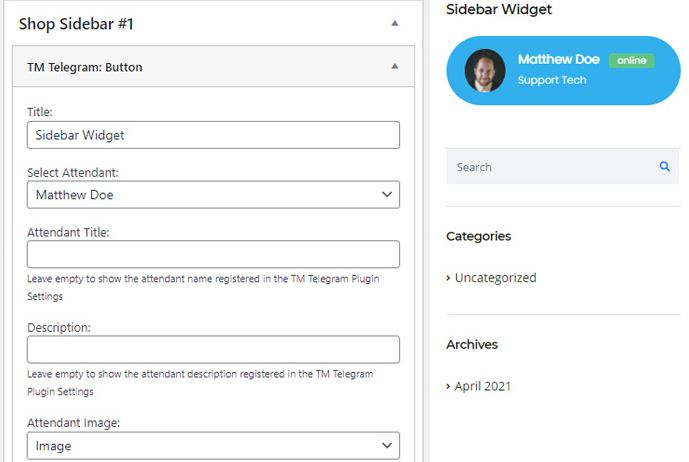
Master Telegram Chat Initiator: a handy plugin that shows a Telegram button on your WooCommerce site. It supports Elementor and WPBakery Pagebuilder. It allows for multiple agents. It has a widget that lets you show the button anywhere.
Have you found better plugins for Telegram? Please share them here.
Keep reading the article at WP Solver. The article was originally written by WordPress Jedi on 2024-01-02 10:39:43.
The article was hand-picked and curated for you by the Editorial Team of WP Archives.
WORDPRESS
The 9 Best eCommerce Hosting Providers in 2024

Are you ready to embark on a new adventure by launching an e-commerce store that will allow you to rake in some serious cash? Fortunately, you have a wide range of hosting options that will suit your new endeavor, depending on which features matter to you most and which ones fit your budget. We make it easier for you to decide with these nine best eCommerce hosting solutions.
Whether you want free SSL certificates for your online stores or are looking for budget-friendly options, we have you covered.
Start taking advantage of these hosting providers for your eCommerce sites today.
TL;DR: What are the Best eCommerce Hosting Services?
Depending on what you want from an ecommerce site, you may choose to go with one of these two services:
Bluehost: Bluehost features very inexpensive hosting that is suitable for beginners who are looking to launch their first ecommerce sites. If you want the flexibility of a WordPress site with WooCommerce and other plugins, then this is the best ecommerce hosting for you.
Shopify: If you’re a little more low-tech, the easy interface of Shopify is ideal. It is uniquely designed to be an ecommerce platform only, allowing you to sell physical and digital goods with just a few clicks. It’s a bit more expensive but might be worth it to build a robust ecommerce site that functions hands-off for you.
9 Best eCommerce Hosting Providers for Reliable Websites
When it comes to finding the best e-commerce hosting provider, there are no one-size-fits-all solutions that will work for every online store. Instead, there are various services, depending on your priorities, budget, and ease of use. Here are the top nine solutions that you might consider for a reliable website.
1. Bluehost: Best for Beginners

The first and perhaps easiest ecommerce hosting solution is Bluehost. It’s ideal for beginners and users who need an inexpensive plan for their wallets, but it will require a little bit of technical know-how. Once you sign up for their hosting, you will have a one-click install for WordPress.
From here, you can utilize the WooCommerce WordPress plugin to facilitate your ecommerce website (which is a free tool that allows you to set up shop). You can put unlimited items in your storefront, limited only by your creativity and market research.
Of course, you can also utilize the endless number of plugins available via the WordPress platform. You can get people signed up for your email newsletter, monitor your traffic, and even focus on your search engine optimization with Yoast SEO. If you can dream it, you can do it with WordPress hosting on this platform.
This is why I personally love Bluehost and use it for all of my niche sites. It’s affordable, reliable, and gets the job done.
The only real drawback of Bluehost is its storage limits. Their cheapest plan has 10 GB SSD storage and their most expensive plan will come with 100 GB SSD storage.
Pricing: Starting at $2.95 per month for Basic
2. Shopify: Best E-Commerce Hosting with Website Builder


Maybe you need something a bit more robust than Bluehost, something that can help you create an ecommerce store. Shopify is the solution you have been searching for because it acts as both your hosting provider and a website builder.
Even low-tech people with minimal coding knowledge get websites up and running quickly on Shopify. They have thousands of templates and apps you can use to customize the appearance and functionality of your storefront with their website builder. It’s a drag-and-drop editor with What You See Is What You Get (WYSIWYG), which makes it easy for a novice coder to start right away.
They have affordable transaction rates, allowing you to implement their payment gateways as quickly as possible. Plus, you get shipping discounts, inventory management tools, and 24/7 chat support.
For more information on this ecommerce platform, see our full Shopify review here.
I have built several Shopify stores and found it to be quite intuitive. I’ve been happy with the selection of themes, the ease of use, and even the pricing. It’s a little expensive compared to Bluehost, but it’s worth it to get an ecommerce business off the ground quickly.
Pricing: $29 per month and up
3. Siteground: Best for a WordPress Website


If you know that your new online store is going to be a WordPress site, then Siteground should be your first stop. Like Bluehost, Siteground features some of the best e-commerce hosting services with a quick and simple WordPress installation. You can get running quickly with plugins already installed to maintain a brand-new store.
The best part of setting up an e-commerce store with Siteground is that you can sell digital and physical goods, so your store won’t be limited as you scale and expand your offerings.
It’s also worth noting that Siteground has some of the fastest loading speeds for web hosting. Compare it to some of the others in our detailed showdown.
They tend to offer great introductory rates for the first year, but it’s worth noting that these prices are much higher if you choose to renew for the second or third year. For a comprehensive look at how this hosting provider stacks up, see our full Siteground review here.
Pricing: Starting at $2.99 per month
4. A2 Hosting: Most Affordable for Advanced Features


If you’re looking for the best eCommerce hosting at an affordable rate, then A2 Hosting might be the fit for you. It has more advanced features than Bluehost or Siteground, but it still offers a competitive price for a robust online store. What can you expect from A2 that would make you sign up now?
Take a look at the benefits of building your eCommerce website on A2:
- Fast loading times
- Free SSL certificate
- Automatic backups
- Server resources on three continents
- Good uptime.
Not only do you get premium web hosting, but you won’t pay an exorbitant fee for their services. If your budget is more in line with Siteground than Shopify, you’ll be pleasantly surprised. Advanced features don’t necessarily come with a high price tag.
Pricing: Starting at $2.99 per month
5. Hostgator: Best on a Budget


If you’re looking to build eCommerce websites on a budget, then Hostgator might be your ideal web hosting provider. Unlike Shopify, which can be a premium tool, you can take advantage of the eCommerce features on Hostgator for a third of the price.
With Hostgator’s e-commerce web hosts, you get robust features like 40 GB storage, gift card, and wishlist functionality, a free SSL certificate, a free domain for the first year, and even access to powerful tools like Yoast SEO.
Plus, you never have to worry about losing your website. They have automatic daily backups for the first year. If security features and uptime are important to you, then Hostgator has a lot to offer. But, if you want less expensive web hosting, you can also use this platform for WordPress hosting with a plugin like WooCommerce.
Compare Bluehost vs Hostgator here to see which one is the better fit for your web hosting.
Pricing: $9.95 per month for an online store
6. Liquid Web: Best for Increased Traffic


Liquid Web is a top contender for the best e-commerce hosting provider if you’re concerned about some of the less expensive options’ lower uptime. Liquid Web hosting offers a 100 percent uptime promise, so you’ll never have to worry about clients missing out on your offering.
Online stores can really benefit from this hosting provider if they’re in a hurry to start selling. Like some of the other e-commerce hosting services included here, it offers a one-click install for WordPress so that you can begin installing plugins and setting up your storefront.
They also have sixteen compliant data centers around the globe with on-site technicians.
Apart from their robust e-commerce features, they have excellent customer support. Chats are answered within the first minute in case you have any questions about your new e-commerce site.
Pricing: Managed WordPress starting at $17.50 per month
7. InMotion Hosting: Best for Quick Setup
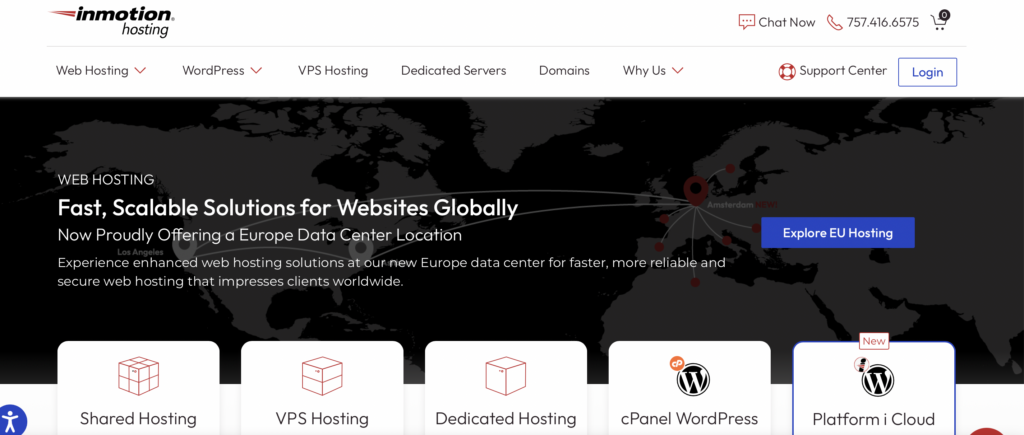

Sometimes, the most important aspect of starting online stores is simply to get off the ground. If setup speed is one of your primary concerns with your new web hosting, then InMotion Hosting may be the perfect solution for you. They use a one-click install with Softaculous, which makes setup a breeze.
Like many of the other ecommerce hosting providers, InMotion still offers a free SSL certificate for your online store, can integrate with WooCommerce and Magento, and includes cPanel for your WordPress management.
Plus, you won’t have to worry about getting in touch with customer support. Their team is available around the clock, 365 days per year. Reach out via phone, live chat, or email to get questions answered and issues resolved ASAP.
Pricing: Shared WordPress hosting starting at $3.99 per month
8. IONOS: Best Premium Hosting Provider
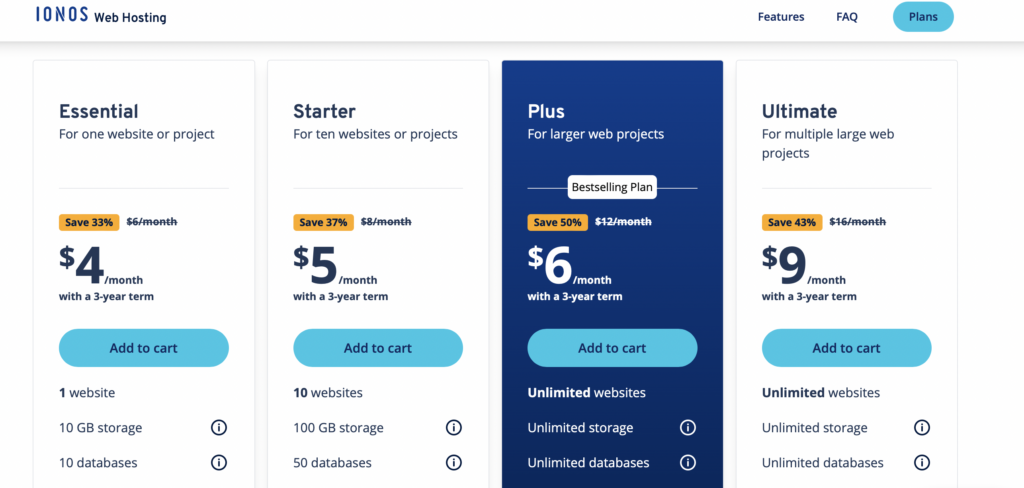

Getting an online store started is hard enough. IONOS aims to make it easy, acting as a premium hosting provider. Their speed is unparalleled, with fast performance and even security features like DDoS protection and automatic backups for your online store.
The downside to using this eCommerce hosting solution is that their most inexpensive plan is a bit more restrictive. On their Essential plan, you get only 10 GB of storage and 10 databases.
However, there are some perks to this eCommerce hosting provider as well: you get a free domain for the first year, professional email access, and daily backups. Like InMotion, they offer free 24/7 support to ensure your business has everything it needs to function at the highest level.
IONOS is a great option if you are willing to pay a little extra for your e-commerce hosting provider. It isn’t expensive enough to set you back, but it is more than Bluehost. Plus, you’ll be locked into a three-year term for your online store.
Pricing: Starts at $4 per month
9. Dreamhost: Best for Fast Loading Times


Last but not least, Dreamhost is one of the best ecommerce hosting providers because it features some of the fastest loading times on the market. Some of the other benefits their ecommerce website will include:
- Free domain
- Unlimited traffic
- One-click WordPress installer and free migrations
- Free SSL certificate
- Inexpensive email add-on.
When your online store requires better uptime, Dreamhost is also worth considering. Competitive with Liquid Web, Dreamhost features an uptime promise of upwards of 99.99 percent, which makes it extremely competitive for your e-commerce store.
If you aren’t sure whether Dreamhost is the right fit for your eCommerce business, you have nothing to lose. They feature a 97-day money-back guarantee to ensure that their service is the right fit for you.
Compare Siteground vs Dreamhost here for a head-to-head comparison.
Pricing: Starting at $2.59 per month
Final Thoughts on The Best ECommerce Hosting Options
Finding the best ecommerce hosting provider can feel overwhelming when all you want to do is launch a new online store. The good news is that there are tons of options out there so that you can find an ideal solution for your storefront.
No matter what you want to sell, how you want to host it, and what you can afford, one of these providers will work for your ecommerce website.
Which one is right for you?
Consider which benefits you need in an online store, and you’ll find a hosting provider that works for you!
WORDPRESS
Best WordPress Plugins of All Time: Updated List for 2024
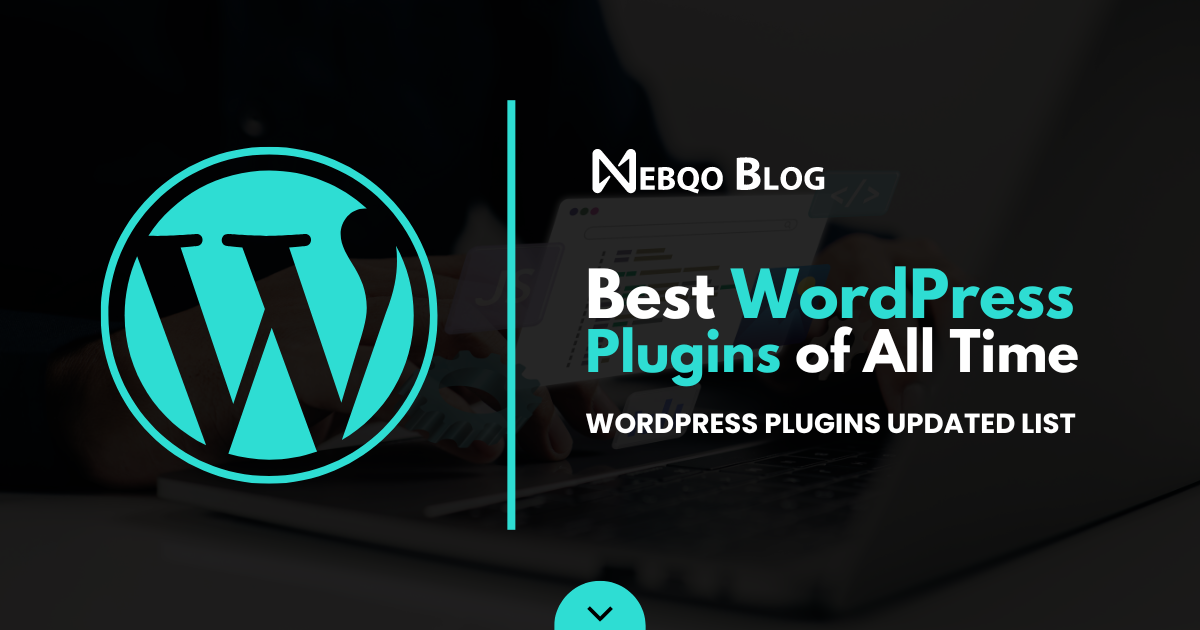
Best WordPress Plugins of All Time: Updated List for 2024
WordPress continues to reign supreme as the platform of choice for millions of users worldwide in the ever-evolving landscape of website development. One key factor contributing to its popularity is the vast ecosystem of plugins, which empower users to customize and enhance their websites easily.
As we venture into 2024, the demand for innovative WordPress plugins remains stronger than ever. From SEO optimization to performance enhancement, security fortification, e-commerce solutions, and beyond, WordPress plugins offer diverse tools to meet the evolving needs of website owners and developers alike.
In this comprehensive guide, we’ll explore the top WordPress plugins for 2024, highlighting their key features and benefits and how they can elevate your website’s functionality and performance. Whether you’re a seasoned WordPress user or just getting started, these essential plugins will streamline your workflow, boost your site’s visibility, and delight visitors.
Without further ado, let’s dive into the world of WordPress plugins and discover the must-have tools for the year ahead.
Best WordPress Plugins of All Time
Top WordPress Plugins: Updated List for 2024
Key Takeaways
- Stay updated with the latest WordPress plugin trends to remain competitive in 2024.
- Invest in plugins offering comprehensive security, performance, and SEO functionality.
- Select plugins that prioritize the user experience and site management ease.
- Keep an eye on new plugin releases that could revolutionize how we interact with WordPress.
- Ensure compatibility and support when choosing plugins to protect your website investment.
- Embrace plugins that help unlock the full potential of WordPress as a digital platform.
In full transparency – some of the links on Webqo Blog are affiliate links, and if you use them to make a purchase, we will earn a commission at no additional cost to you.
Essential SEO WordPress Plugins
Effective SEO WordPress plugins are key to getting ahead in search engine results. These tools help make your site easier to find by improving its SEO. This means better site visibility and more visitors.
All-in-One SEO
A Comprehensive SEO Solution

All-in-One SEO (AIOSEO) is a top choice for managing SEO. It comes packed with features to handle all your SEO needs with ease. You can edit your SEO titles, meta descriptions, and keywords without hassle. Plus, its sitemap feature works well with Google Search Console. This helps you keep an eye on how your site is indexed.
AIOSEO is unique with its TruSEO content analysis and custom schema generator. These tools are crucial for staying relevant in searches and attracting more clicks from search results.
Yoast SEO
A Popular Choice for Optimizing WordPress Sites
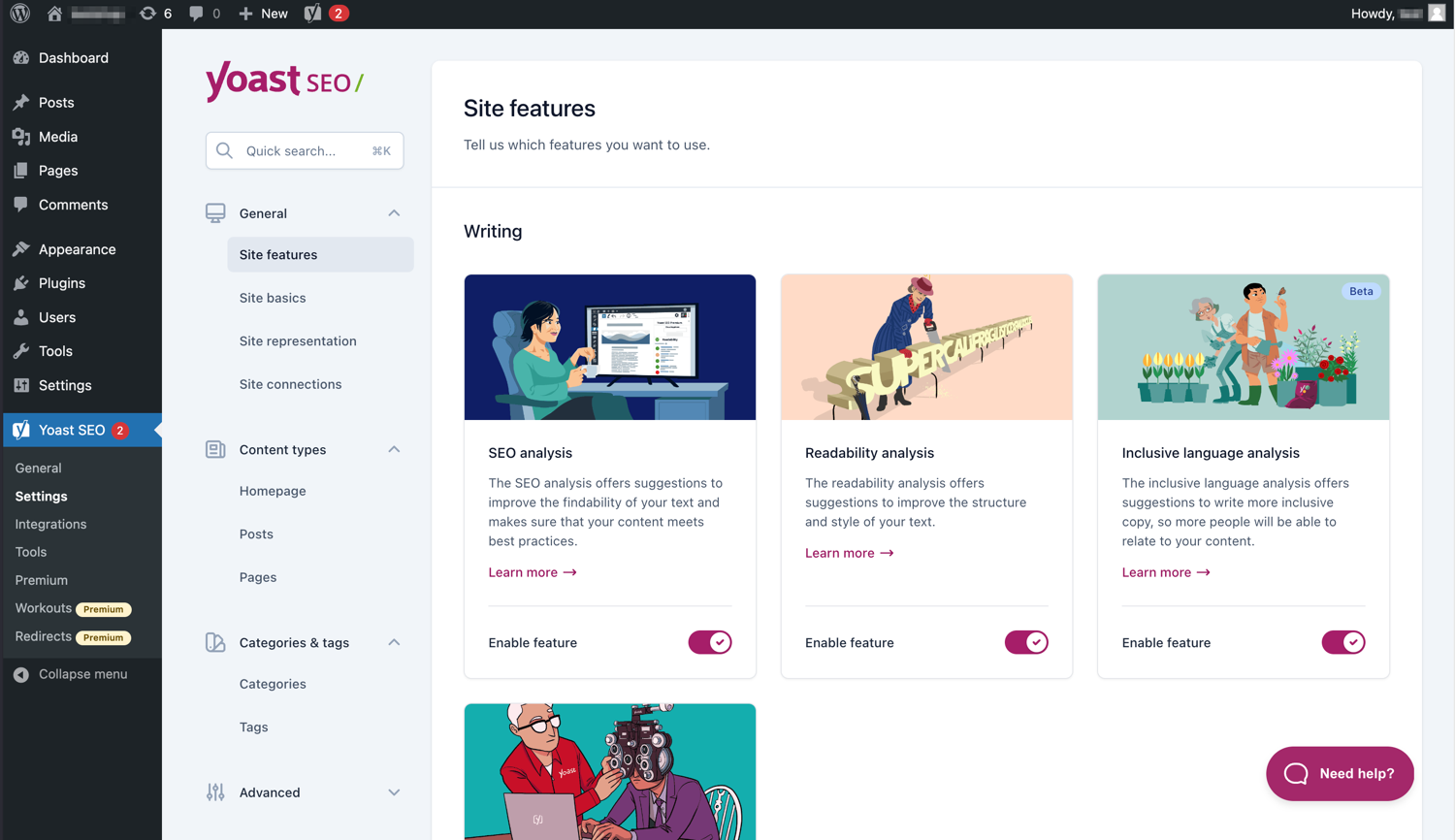

Yoast SEO is another great SEO plugin. It’s known for being easy to use. It offers a simple way to edit meta information and helpful tips for linking and schema, which can greatly improve your site’s SEO.
The free version of Yoast SEO is a good start for beginners or those on a budget. If you’re ready for more, the premium version offers extra features like social previews. This can further improve your site’s SEO.
Using these plugins can really boost your site’s performance on search engines. In today’s competitive digital world, they provide a necessary advantage. They can help your website stand out online.
Enhancing Website Performance with Caching Plugins
Website caching boosts your site’s speed and improves its user experience. Website performance caching plugins are key to faster loading times and help keep people on your site longer. In today’s digital world, using advanced WordPress caching is essential for success.
WP Super Cache
Improve Loading Speeds with Advanced Caching


WP Super Cache helps your site by creating static HTML files. Your WordPress site works faster because it’s easier on your server. This plugin is perfect for speeding up your site without spending money.
WP Rocket
An All-in-One Solution for Site Performance
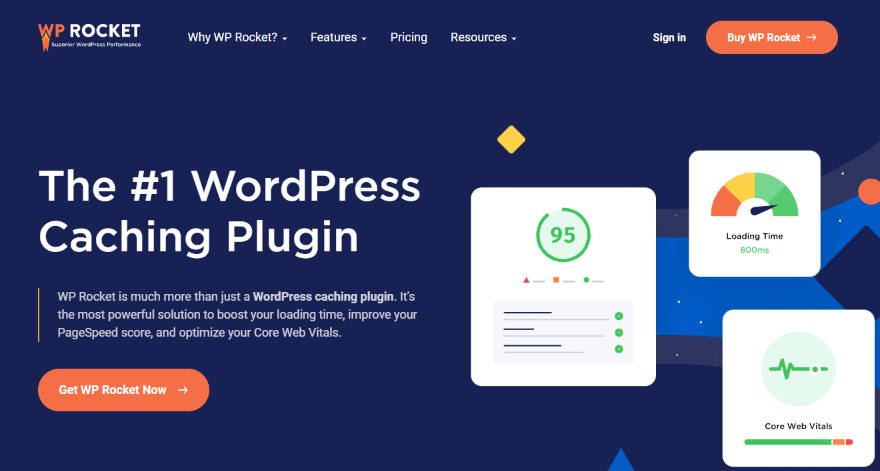

WP Rocket stands out with its comprehensive approach. It improves caching, speeds up images, optimizes databases, and more. Its easy interface lets anyone improve their site’s performance, making it a top choice for enhancement.
| Feature | WP Super Cache | WP Rocket |
|---|---|---|
| Caching Method | Static HTML file caching | Page caching, browser caching, and cache preloading |
| Optimization Tools | CDN support, cache preloading | File compression, lazy load images, database optimization |
| User-Friendliness | Basic interface suited for tech-savvy users | Simple, intuitive interface for all levels of users |
| Cost | Free | Premium (with free trial) |
Choosing between WP Super Cache and WP Rocket depends on your needs. WP Super Cache offers free options, while WP Rocket provides premium services. Both are great choices for improving your website’s performance, satisfying users, and ranking higher on search engines.
WordPress Security Essentials
Keeping your WordPress site safe from cyber threats is crucial today. Hackers are getting smarter. A secure blog protects your content and keeps your brand’s trust. Using WordPress site security solutions is essential for any site owner.
Good security steps can make or break your site. The right tools help fight off attacks, from brute force to malware. Let’s see what defenses you can use for WordPress.
- SolidWP Security Specializes in preventing unwanted intrusions and securing user credentials.
- Secupress Offers a sleek interface and powerful protection against myriad digital threats.
- WordFence Features an endpoint firewall and malware scanner engineered from the ground up to protect WordPress.
- Limit Login Attempts Reloaded Thwarts brute force attacks by restricting the number of failed login attempts.
- WPS Hide Login Enhances security by allowing the creation of custom URLs for the login page, minimizing exposure to automated attacks.
| Plugin | Core Function | User-Friendly Interface | Notable Feature |
|---|---|---|---|
| SolidWP Security | User Credential Protection | Yes | Two-Factor Authentication |
| Secupress | Digital Threat Defense | Yes | Anti-Brute Force Lockdown |
| WordFence | Firewall and Malware Scanner | Yes | Real-time IP Blocklisting |
| Limit Login Attempts Reloaded | Login Protection | Yes | Login Attempt Limiting |
| WPS Hide Login | Custom Login URL Creation | Yes | Stealth Login Page |
Remember, it’s important to layer your security. This makes it hard for hackers to get through. Using several WordPress security plugins gives you strong protection against many cyber threats.
WordPress Plugins for Creating Engaging Content
Creating engaging WordPress content is easier with the right page builder plugins. Elementor and SeedProd are top choices for design and customization. They lead page-building experience and theme customization.
Elementor
Leading the Way in Page Building


Elementor makes page building easy and fun. Its drag-and-drop interface lets you design complex layouts without coding, and its responsive editing features make WordPress design accessible and enjoyable.
SeedProd
Quickly Craft Beautiful Pages and Themes


SeedProd speeds up theme customizations and page creation. It helps users create stunning web pages quickly. Creating beautiful pages and themes becomes easy and creative with its intuitive platform.
| Feature | Elementor | SeedProd |
|---|---|---|
| Interface | Drag-and-Drop Editor | Visual Drag-and-Drop Theme Builder |
| Customization | Advanced Styling Options | Ready-to-Use Page Templates |
| Widgets/Blocks | Hundreds of Unique Widgets | Custom Blocks for Various Purposes |
| Responsiveness | Mobile Editing and Preview | Adaptive Design Features |
| Learning Curve | Minimal, User-Friendly | Very Low, Beginner-Friendly |
| Use Case | Detailed Site Builds | Quick Launches and Revisions |
Using these plugins for WordPress means more than a good-looking site. It’s about improving user experience and connecting with your audience. Elementor and SeedProd help you create content easily and effectively as digital tools evolve.
You can also check out this list of the best WordPress themes to improve your website.
Top Backup Solutions for WordPress
Every WordPress website owner needs a good backup strategy. A reliable backup plan ensures you can regain your site after hacking, server issues, or mistakenly deleting content. Using the best WordPress site backup plugins protects your data and gives you peace of mind. Let’s look at some top backup solutions trusted by the WordPress community.
BackupBuddy is a premium choice known for its ease of use and protection of multiple sites. It lets you set up scheduled and instant backups.
BlogVault is great because it saves off-site data and makes a recovery simple.
WP Time Capsule is ideal for those who prefer saving changes as they happen. It saves resources by backing up only recent changes instead of everything.
| Feature | BackupBuddy | BlogVault | WP Time Capsule |
|---|---|---|---|
| Backup Type | Full and Scheduled | Incremental | Incremental |
| Storage Options | Local and Cloud | Off-site BlogVault Servers | Choose Your Own Cloud Storage |
| Restore Capabilities | Individual File Restore | One-Click Restore | One-Click Restore |
| Price Point | Subscription-Based | Monthly/Annual Plans | Annual Subscription |
| Additional Benefits | Private Support, Customizable Backup Content | Easy Site Migrations, Performance Checks | Real-time Backup, Staging Site |
It’s key to pick the right plugin to secure WordPress data. Consider what’s most important: ease of use, reliability, and cost. Make sure the plugin you choose meets your specific requirements. Apart from these features, it’s also crucial to have ongoing support and updates. This ensures your backups stay effective as WordPress and its plugins continue to grow.
WordPress Analytics Plugins to Track Performance
Knowing your audience and your content’s impact is vital today. WordPress analytics plugins are essential for website owners who want to monitor their site’s performance. By integrating with Google Analytics, these plugins provide detailed insights and reports through MonsterInsights and ExactMetrics. They help you make smart decisions based on data.
MonsterInsights
Integrating Google Analytics into WordPress


MonsterInsights makes using Google Analytics easy. It helps you track your website’s performance without hassle. The interface turns complex data into easy-to-read reports right in your WordPress dashboard. Here’s what MonsterInsights offers:
| Feature | Description |
|---|---|
| Real-Time Stats | See what visitors are doing on your site right now. |
| Universal Tracking | Track activity across devices and campaigns for a complete view. |
| E-commerce Tracking | Learn about your customers’ buying habits to boost your ROI. |
| Custom Dimensions | Get deeper insights by tracking data like authors and post types. |
| Enhanced Link Attribution | Find out which links on your page get the most clicks and attention. |
ExactMetrics
Detailed Reporting for Informed Decisions


ExactMetrics is perfect for those who need advanced analytics. It offers detailed data to refine your strategies with its robust reporting features. Here’s what you get with ExactMetrics:
- A clear dashboard – It shows important metrics in an easy-to-understand way.
- Performance tracking – Check how load times impact the user experience.
- Demographic data – Understand who your audience is.
- Custom reports – Make reports that focus on your specific goals and KPIs.
- Affiliate link tracking – Monitor how well your affiliate links are doing to improve earnings.
Both MonsterInsights and ExactMetrics offer powerful ways to monitor your website. They integrate easily with your WordPress dashboard, keeping you informed. This helps you enhance your site’s success with every choice you make.
E-commerce Integration: Best WordPress Plugins
You need the best tools to build a strong eCommerce platform on WordPress. eCommerce WordPress plugins like WooCommerce are top choices. They offer a complete solution to integrate an online store with WordPress. With many features, WooCommerce lets business owners easily create and manage their online store. This shows how vital eCommerce site enhancement is.


However, WooCommerce is not the only option for an engaging customer shopping experience. Let’s explore the features of top WooCommerce plugins. These can boost your online store’s efficiency and appeal:
- Product Add-Ons: Allow customers to personalize products to their liking.
- WooCommerce Subscriptions: Facilitate recurring payments for subscription-based products or services.
- WooCommerce Bookings: Enable customers to book appointments, reservations, or rentals directly from your website.
- Dynamic Pricing: Set flexible pricing rules based on quantity, user role, or other criteria.
- WooCommerce Memberships: Create a membership system tied to your store, offering special discounts or exclusive products.
As your online business grows, these plugins are key. They give your customers a more dynamic, interactive, and personalized experience. Using such plugins makes operations smoother and boosts your store’s capabilities. This lets you adjust your eCommerce offerings to meet your market’s changing needs.
Every plugin plays a vital role in your online store’s success. They help your eCommerce site run smoothly, efficiently, and attractively. In today’s online market, making your customers happy is essential. These eCommerce WordPress plugins are necessary for building successful online stores. Adding these eCommerce site enhancement tools to your strategy leads to a well-managed, more engaging, and more profitable online business.
User Interaction and Forms
Making a connection with your audience is key. Adding user interaction plugins and WordPress contact forms helps a lot. This makes reaching out easier and improves everyone’s experience. It encourages more feedback and gives you useful information.
WPForms
User-Friendly Drag & Drop Contact Forms
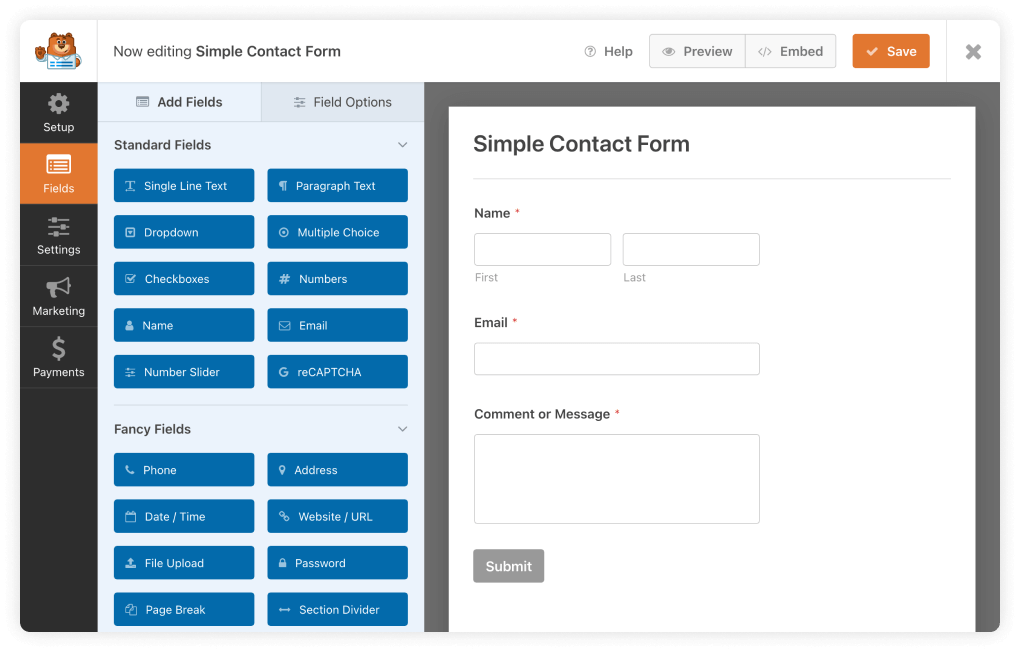

With the WPForms drag-and-drop builder, anyone can create custom contact forms. It’s easy to use, regardless of your skill level.
Gravity Forms
Advanced Forms for WordPress


Gravity Forms’ advanced functionalities are perfect if you need something more complex. They let you customize everything, from polls to detailed order systems.
| Feature | WPForms | Gravity Forms |
|---|---|---|
| User Interface | Drag & drop, user-friendly | Developer-oriented, advanced |
| Template Availability | Extensive library of pre-built templates | Basic and advanced templates |
| Use Cases | Contact forms, newsletters, payments | Surveys, user-generated content, web applications |
| Integration | Seamless with popular services | Extended through add-ons |
| Customer Support | Documentation & priority support | Extensive knowledge base & ticket support |
Choosing between WPForms and Gravity Forms depends on your needs and expertise. Both can boost user engagement and collect important data. They push WordPress sites to be more interactive.
Email Marketing and List Building Plugins for Growth
Growing your WordPress email list is key for boosting engagement and loyalty. Effective list-building strategies help you gain a dedicated following, not just email addresses. Certain email marketing plugins are great at increasing subscription rates and improving campaigns.
OptinMonster is a top choice for email subscriber plugins. It offers easy-to-use design tools and targeted pop-ups, which increase conversion rates significantly. Plugins also help keep subscribers, capture leads, and let site owners create personalized email campaigns that speak to audiences.
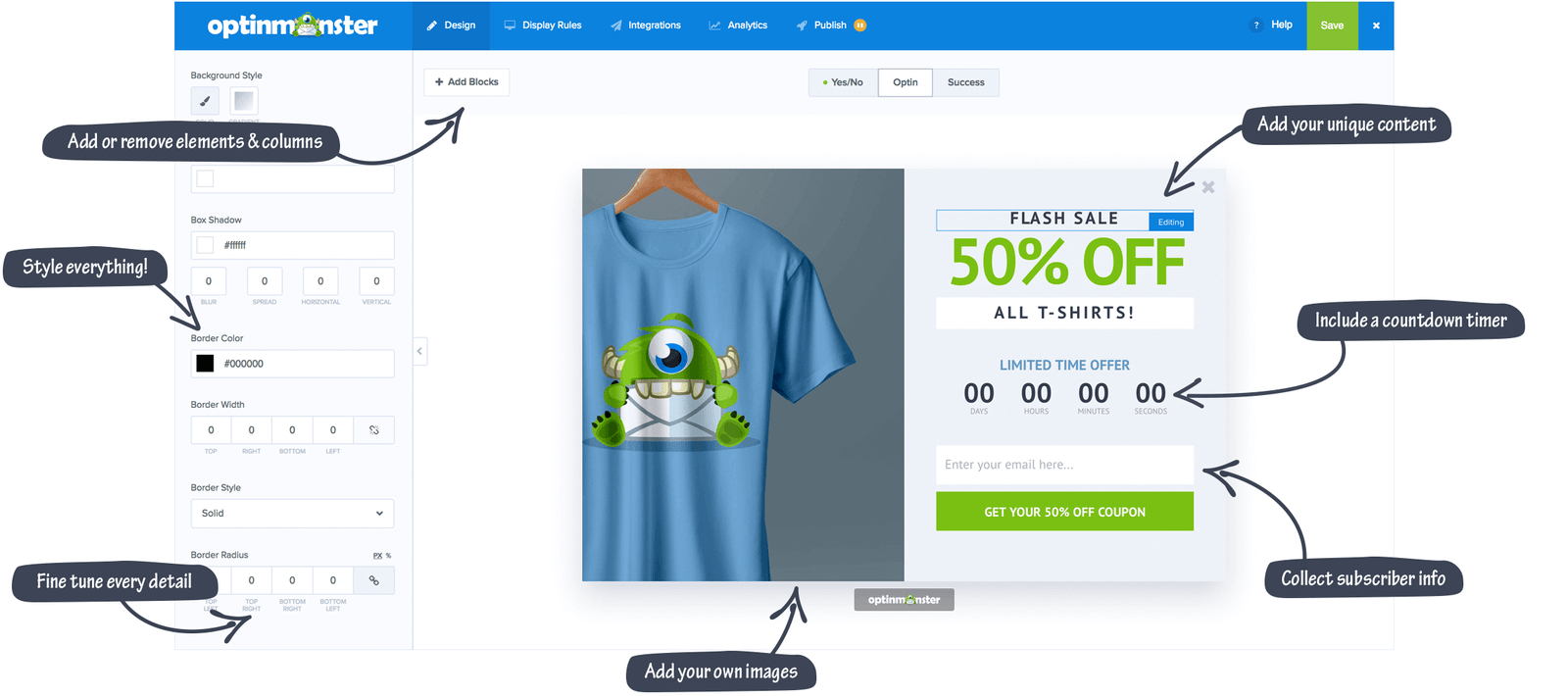

Discover plugins that add subscribers to your list and help you engage them through powerful segmentation and automated follow-ups.
Using a range of email marketing WordPress plugins is crucial. Plugins that work well with analytics and other tools help webmasters. They can offer each subscriber a personalized and data-driven journey.
- Segmentation features: For personalized experiences.
- Automated triggers: To send emails at optimal times.
- A/B Testing capabilities: To refine campaigns for better results.
- Easy opt-in form builders: To grow lists effectively.
These are key parts of strong list-building strategies. They attract and keep subscriber interest.
Growing your email list with the right plugins lays a foundation for success. As your site grows, update your strategies to keep your marketing efforts fresh and effective.
MemberPress and LMS Plugins: Building Online Communities and Courses
The need for digital learning spaces is growing. This has increased the demand for strong Learning Management Systems (LMS) that work well with WordPress. LMS plugins for WordPress are great because they let you create courses, build online communities, and make learning more engaging.
These tools are super helpful for those who create content and teach. With LMS plugins, you can create and run full online courses, which helps spread knowledge and grow communities.
LMS plugins for WordPress empower educators to reach broader audiences and transform the online learning landscape.
LearnDash
A Powerhouse for Online Course Creation
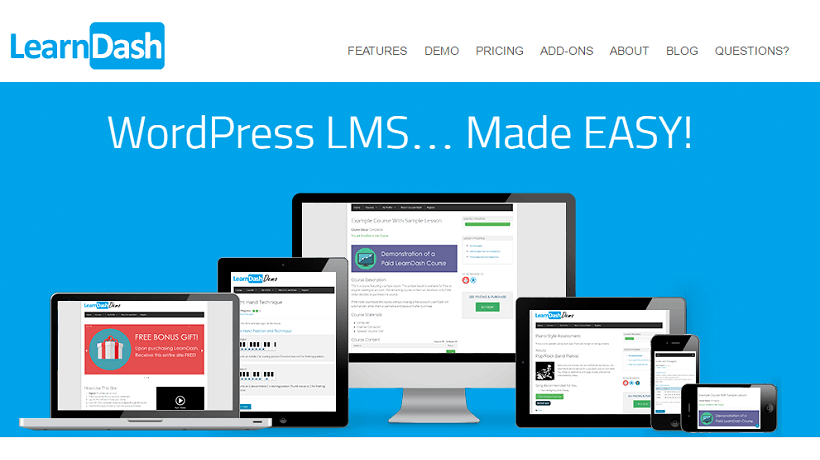

LearnDash makes creating online courses easy. It is known for its easy-to-use interface and cool features. This plugin helps you put together and deliver courses online. It includes tracking course progress, advanced quizzes, and ways to deliver courses on different levels. LearnDash is a key tool for delivering educational content online.
MemberPress
Making Membership Management Effortless


If you want to create areas for exclusive content or subscription products, MemberPress is perfect. It adds exclusivity to online communities. This plugin fits into your WordPress site and lets you create a membership site with different access levels and subscription options.
| Feature | LearnDash | MemberPress |
|---|---|---|
| Course Creation | Drag-and-drop course builder | – |
| Membership Levels | Limited support through add-ons | Unlimited levels with customizable access rules |
| Content Dripping | Scheduled content delivery | Content access based on subscription level |
| Quizzes and Assessments | Advanced quiz settings and question types | – |
| Community Building | Certificate and badge awarding system | Integration with forums and social groups |
| Subscription Management | – | Automatic billing and renewal notifications |
Using LMS plugins on your WordPress site can make it a lively place for sharing knowledge and building community. Whether managing a membership site with MemberPress or creating online courses with LearnDash, these tools make your site a center for learning and connection.
FAQs about Best WordPress Plugins
Best WordPress Plugins of All Time: Updated List for 2024
You’ll discover some frequently asked questions about the best WordPress plugins below.
What are the best WordPress plugins for 2024?
The top WordPress plugins for 2024 are designed to improve your site’s SEO and speed. They also boost security and enhance how your site works and feels. Some key plugins are All in One SEO, WP Super Cache, and WooCommerce.
Which SEO plugins are essential for WordPress sites?
Important SEO plugins for WordPress include All in One SEO and Yoast SEO. They help your site rank higher in search engine results. They do this by managing SEO titles, creating sitemaps, and analyzing your content to make it better.
How can caching plugins enhance website performance?
Caching plugins like WP Super Cache speed up your site by saving cached versions of pages. They use methods and features like file compression to make your site faster and more pleasant for visitors.
What are the top security plugins for WordPress?
For WordPress security, iThemes Security and WordFence are among the best. They protect your site from attacks, scan for risks, and manage firewalls. These steps keep your WordPress site safe from threats.
Can you recommend plugins for creating engaging content on WordPress?
Elementor and SeedProd stand out for engaging content. Elementor has many design options for building pages. SeedProd’s drag-and-drop builder lets you easily create beautiful pages and themes.
What are the best WordPress plugins for site backups?
Top backup plugins for WordPress sites include BackupBuddy and UpdraftPlus. They regularly save your data, offer easy ways to restore it, and keep your site safe from data loss or attacks.
How do social media plugins benefit WordPress websites?
Social media plugins help integrate your site with platforms like Facebook and Twitter. They make sharing content easier, increase engagement, and build a community around your brand.
Why are WordPress analytics plugins important?
Analytics plugins like MonsterInsights provide valuable insights into your website’s performance. They track visitor behavior, helping you to improve your site for better engagement and conversions.
What plugins should I use for eCommerce on WordPress?
WooCommerce is essential for running an online store on WordPress. It has features for listing products, managing inventory, and handling payments securely.
What are the best WordPress plugins for creating forms and improving user interaction?
WPForms and Gravity Forms are great for making forms on WordPress. They support everything from simple contact forms to complex surveys, boosting user interaction and data collection.
Are there effective plugins for email marketing and list building?
Email marketing is made easy with plugins like OptinMonster. They allow you to build subscription forms, launch targeted campaigns, and manage email lists effectively.
Which plugins are best for creating membership sites and online courses on WordPress?
MemberPress and LearnDash are top choices for membership sites and online courses. MemberPress helps with membership management. LearnDash is great for setting up courses, quizzes, and certifications.
Quick Links
Top WordPress Plugins: Updated List for 2024
We hope you enjoyed this post. If you did, you might want to check out these other resources:
Best WordPress Plugins Summary
As we’ve explored in this comprehensive guide, WordPress plugins are crucial in enhancing your website’s functionality, security, and performance. From SEO optimization to performance enhancement, security fortification, e-commerce solutions, and content creation, WordPress plugins offer diverse tools to meet the evolving needs of website owners and developers.
In 2024, the demand for innovative WordPress plugins continues growing as businesses and individuals seek to stay ahead in the competitive online landscape. By leveraging the top WordPress plugins highlighted in this guide, you can streamline your workflow, boost your site’s visibility, and delight visitors with an immersive browsing experience.
Whether you’re a seasoned WordPress user or just getting started, these essential plugins will enhance your website’s capabilities and help you achieve your online goals. As you embark on your journey with WordPress in 2024 and beyond, remember to stay informed about the latest tools and trends in the ever-evolving ecosystem of WordPress plugins.
Thank you for exploring the best WordPress plugins for 2024. We hope you found this guide informative and insightful, and we wish you success in creating exceptional websites powered by WordPress.
-

 PPC6 days ago
PPC6 days agoHow the TikTok Algorithm Works in 2024 (+9 Ways to Go Viral)
-

 SEO7 days ago
SEO7 days agoBlog Post Checklist: Check All Prior to Hitting “Publish”
-

 SEO5 days ago
SEO5 days agoHow to Use Keywords for SEO: The Complete Beginner’s Guide
-

 MARKETING6 days ago
MARKETING6 days agoHow To Protect Your People and Brand
-

 SEARCHENGINES7 days ago
SEARCHENGINES7 days agoGoogle Started Enforcing The Site Reputation Abuse Policy
-

 PPC7 days ago
PPC7 days agoHow to Craft Compelling Google Ads for eCommerce
-

 MARKETING7 days ago
MARKETING7 days agoElevating Women in SEO for a More Inclusive Industry
-

 PPC7 days ago
PPC7 days agoHow to Brainstorm Business Ideas: 9 Fool-Proof Approaches






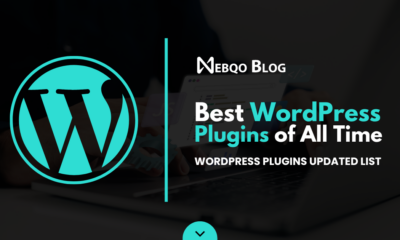







You must be logged in to post a comment Login